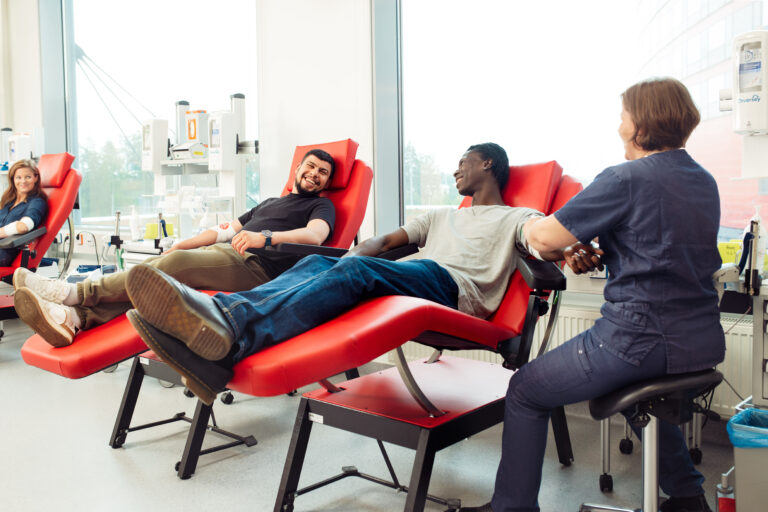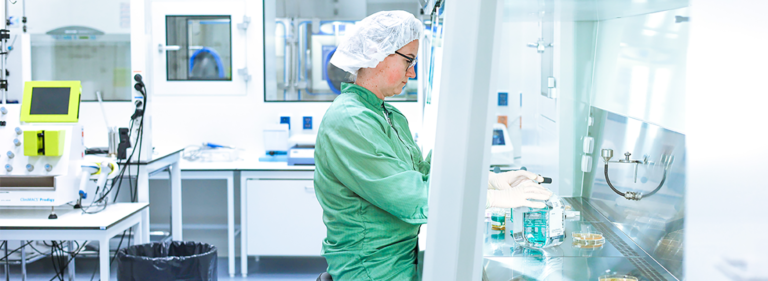75 years of care: Blood Service celebrates its anniversary
Year 2023 marks the 75th anniversary of the start of operations of Finnish Red Cross Blood Service. The systemic collection of blood began in Finland during the war years. Established in 1948, the Blood Service has been responsible for the national blood supply chain with voluntary donors for decades, for the benefit of the patients.
The Blood Service is a cornerstone of Finnish health care that provides Finnish hospitals with blood products, stem cell transplants and laboratory services for treating patients 24/7.
The Blood Service started doing research already in the 1950s and is now a unique blood cell competence centre in Finland. Most recently, its operations were expanded to include biobank services and the Advanced Cell Therapy Centre, which supports the development of cell therapies.
Celebrating the anniversary and looking to the future
“Although the history of the Blood Service is a great story, during the anniversary year, the focus will be more on renewal than remembering the past. The special themes of the anniversary year are appreciating the donors and renewing the operations to meet the needs of our core mission, the Finnish blood supply chain,” says Willy Toiviainen, Director of Communications and Human Resources at Finnish Red Cross Blood Service.
The most significant renewal is the relocation of the Blood Service to new premises in Vantaa in autumn 2022, which supports the reliability of blood supply and enables the use of new technologies. The cell production centre in Vantaa, for example, facilitates the production of blood products for new cell therapies.
New digital service platforms will also be deployed during the anniversary year to improve the services for blood donors, including a new mobile app for blood donors and a new website. There are also plans to add a bloodmobile to the blood donation system as an agile way of bringing blood donation services closer to the donors in various districts and workplaces of the Helsinki Metropolitan Area.
Acts of humanity
The technology and practices have changed a great deal over the years. During the early years of the Blood Service, blood was collected in glass bottles and given to patients as whole blood. In the current production process, the blood is separated into red blood cells, platelets or plasma-derived medicinal products, and these components of blood are given to patients according to their individual treatment plans.
It is also current policy to analyse the donated blood for any bloodborne viruses causing serious diseases. In the laboratories, automation and robotics have largely replaced manual labour.
“Despite the technological advances, the basic mission of the Blood Service has not changed. We cannot make blood artificially so we need helpful volunteers who are willing to give up their time and lend a helping hand to the patients. This remarkable act of humanity is still alive in the world,” says Willy Toiviainen.



